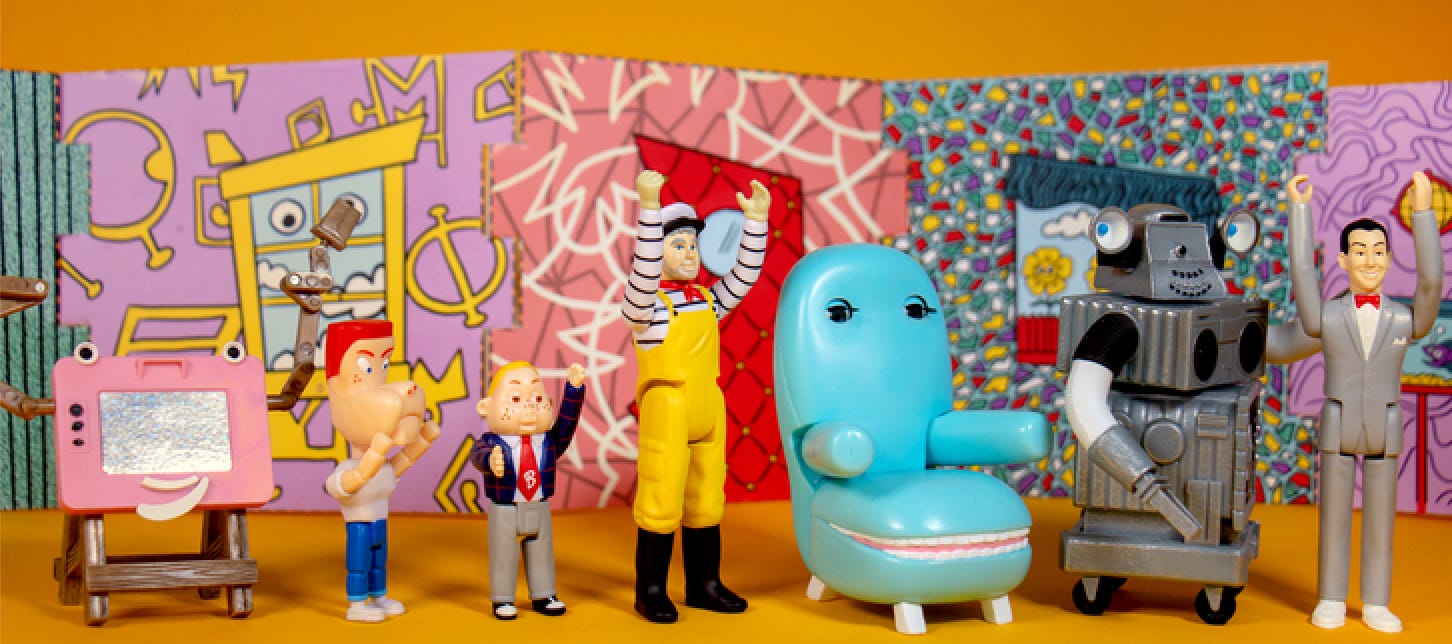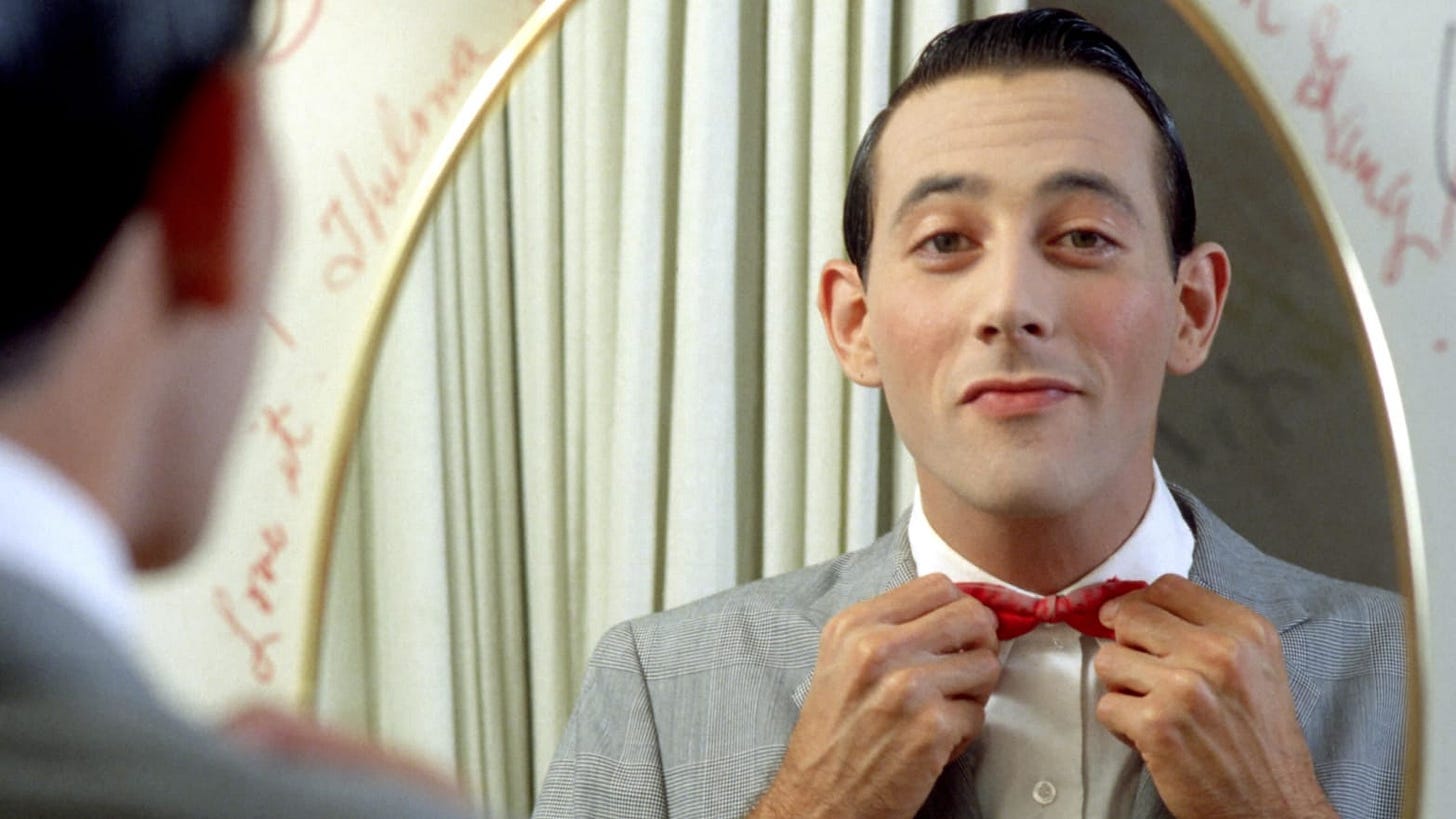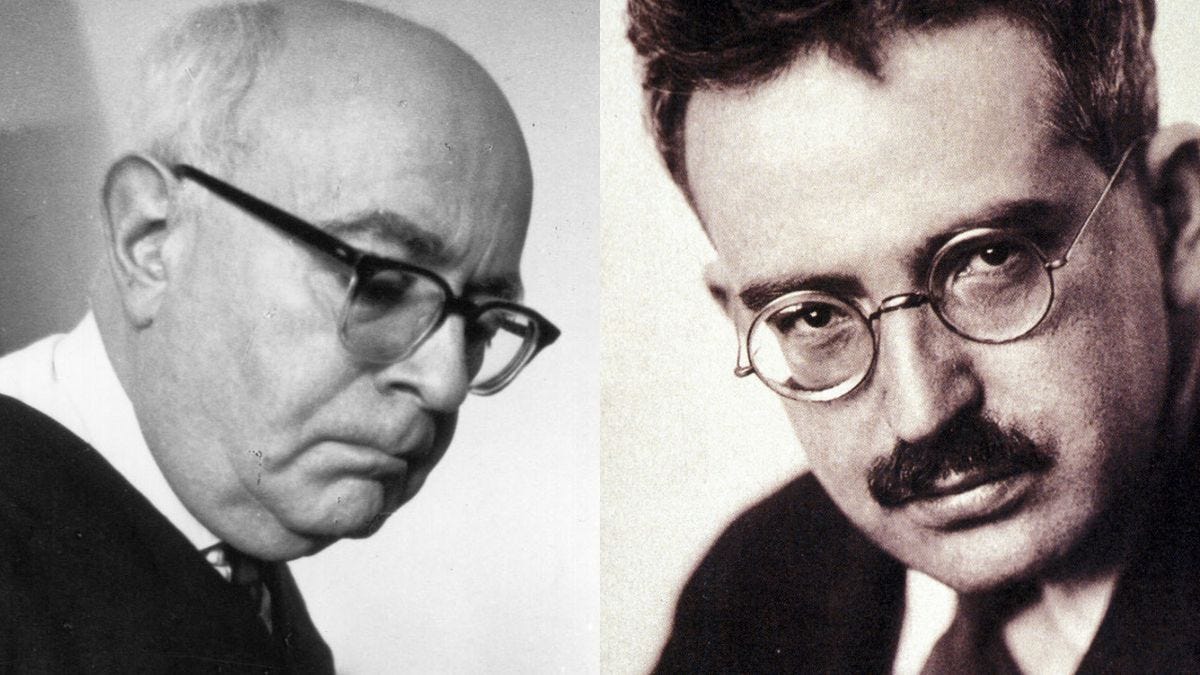August Theme : NOSTALGIA
Some notes on toys, joys, youth & the corporate memory factory.
Though I had decided few weeks ago that this month’s theme would be Nostalgia (after slightly vacillating between the near alternative concepts of Youth or The Past), there’s no way to begin this brief survey without pausing to honor Pee-wee Herman, aka Paul Reubens, who died yesterday, age 70. Appropriately, the poet-writer we will focus on this month for paid subscriber posts is Walter Benjamin.
The earliest part of my childhood that I remember vividly goes back to the TV world of the late 80s and early 90s. Pee-wee’s Playhouse had an important role in the ritual of those mornings. My mother worked as a banking assistant in Manhattan. She woke around 5 am to leave for an unforgiving commute: taken first by car and then two different connecting trains. My father was a psychiatric nurse who worked nights. He would return home around 7 am, right around the time I would be rising back from dreamland to life. Together, we’d watch a staple of cartoon shows before I had to brush my teeth, shower and eat a fresh batch of microwavable pancakes he had cooked up for me while he plunged a fat spoon into grapefruit and stared over The New York Times.
The shows we watched included Thomas & Friends, a still neglected masterpiece that featured semi-magical conductors played successively by Ringo Starr (before 1991) and George Carlin (1991 to 1993). By far, though, the show that was my favorite (and his too) was Pee-wee’s Playhouse. I owned all the toys: not just the action figures, but also the Playhouse itself, which doubled as a carrying case that opened up to reveal the scene (two-sided set) of the show. Take that for your valise, Duchamp.
—First, a big question: is nostalgia inherently a reactionary, conservative, mass sentimentalist affect and therefore an ideologically poisonous activity?
Though Benjamin is most known for his definitive essays on Baudelaire, Proust, Kafka, on translation and technology, we can’t forget that there is no critic that takes the objects and paraphernalia of childhood more seriously than him, at least before him. No, Benjamin is never as joyously uncritical as Joe Brainard’s I Remember or as militantly dissociative and recreative as John Ashbery. But I kind of refuse to read Benjamin as an ironist in the grand Germanic sense of Kierkegaard and Nietzsche (probably to his chagrin). The writerly descendants of Benjamin, which include Baldwin, Barthes, Sontag, Hilton Als, Wayne Koestenbaum and Maggie Nelson, are profoundly earnest spirits about their passions in way. Are they nostalgic, though?
One could never imagine, for instance, Marx young or old waxing rhapsodically on the dolls of his Prussian household. What’s so incredible, in a way—putting aside the perfunctory critique of Benjamin’s quite privileged Berlin upbringing—one never senses him merely prioritize historical analysis at the expense of Proustian wonder. As Benjamin got older he moved more and more away from the spiritualist Romanticist roots of his youth, but they never vanish, not completely. And it makes him a stronger, if more contradictory, revolutionary.
In short, Benjamin took the content and form of youth/childhood seriously. It’s hard to do this under the cringe extremities of consumer capitalism. Product placement, brand loyalty, the soulless toys and franchises of globalist-America childhood. And yet prophetically, in a way that not even Rilke or Proust emphasized, Benjamin was invested without contempt towards nostalgia. He took it as a serious problem. Did Andy Warhol? Did Mike Kelley? Who cares about seriousness, you might say. Yet Benjamin thought it was revolutionary.





